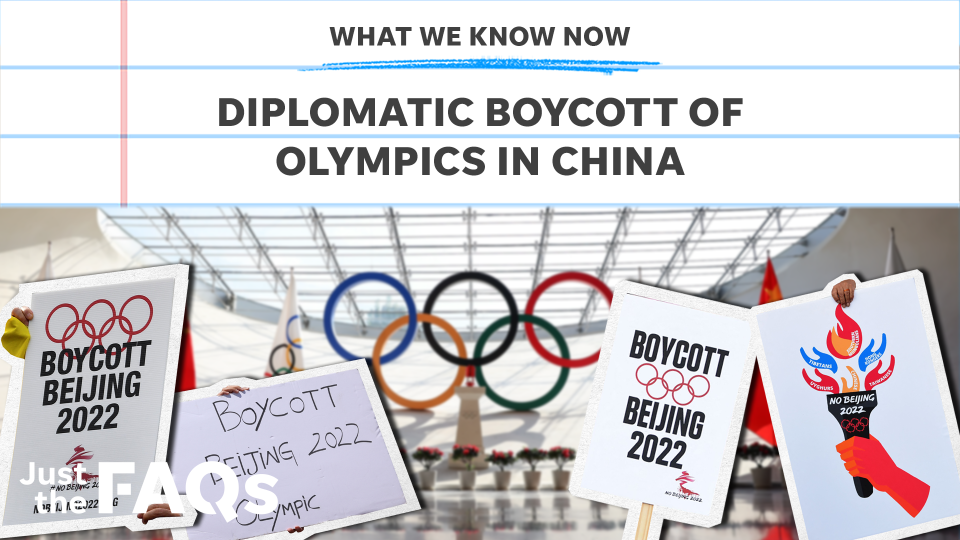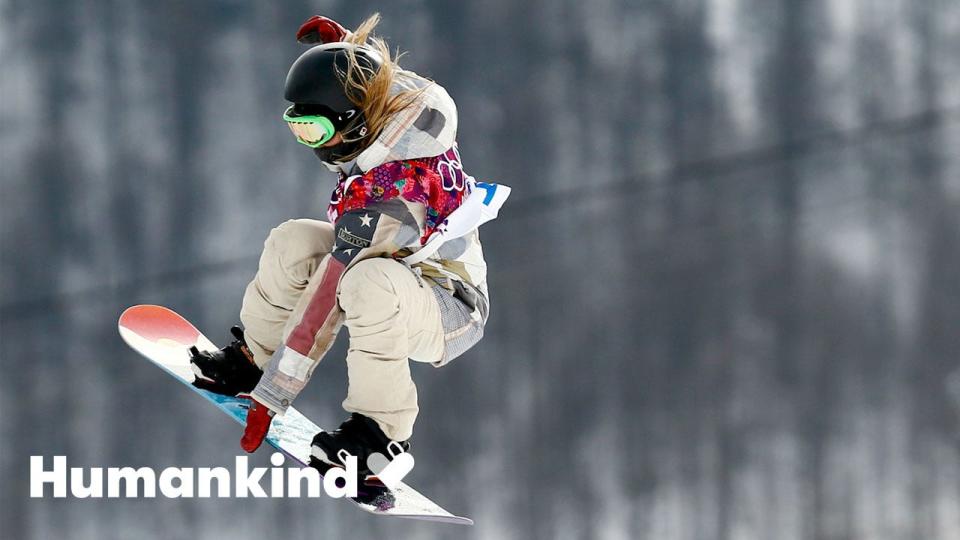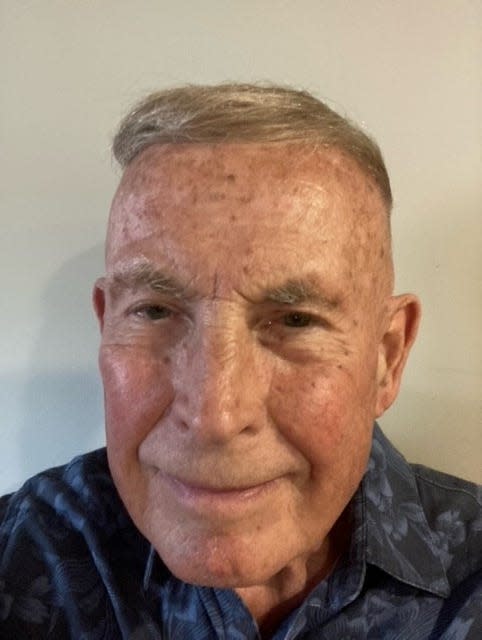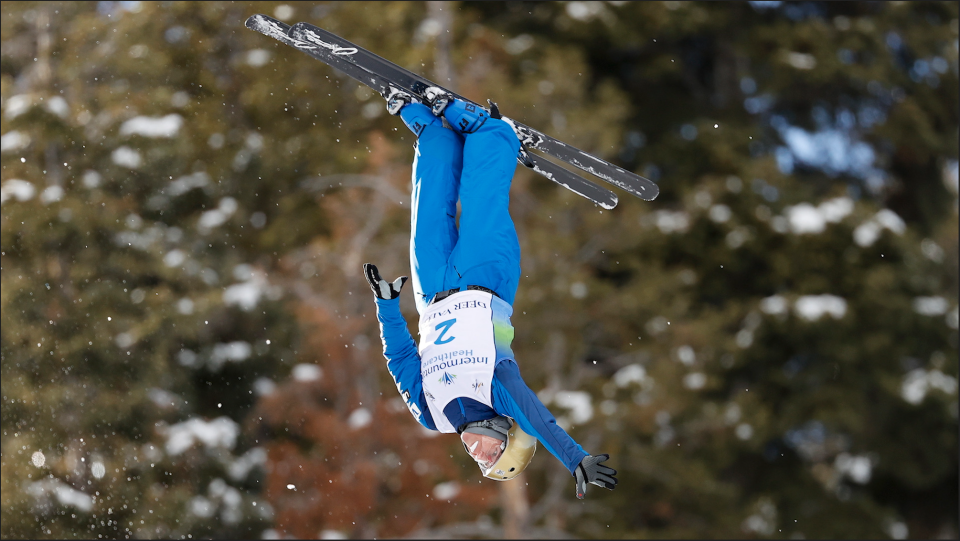Athletes put politics aside for the Olympics. So should politicians | Opinion
- Oops!Something went wrong.Please try again later.
"East is East, and West is West, and never the twain shall meet … "
So goes the familiar opening of Rudyard Kipling’s "The Ballad of East and West." Writing in 1889, Britain’s great adventure poet could not foresee the birth of the modern Olympic Games only seven years later. Or that athletes from the ends of the earth would gather this February in Beijing, China, to compete in the 2022 Winter Olympics.
Politics is once again enveloping the Olympic Games in a war of words. President Joe Biden has ordered a diplomatic boycott, prohibiting government officials from attending, to protest the Chinese government’s “ongoing genocide” and “crimes against humanity.” The Chinese government has responded with threats of a “robust response” and “countermeasures.”
Some Republican lawmakers, including Tennessee’s Marsha Blackburn — normally a voice of reason in the U.S. Senate — called for a full athletic boycott, withdrawing the United States from the games. To participate, they argued, would be seen as an endorsement of the Chinese Communist Party’s human rights abuses. Others, including Sens. Ted Cruz and Marco Rubio, supported the diplomatic option but opposed an athletic boycott, which they said would be unfair to the athletes.

Past boycotts and threats of boycotts
There is nothing new about Olympic Games boycotts and threats of boycotts. In 1936, there was a national debate about whether to boycott the Berlin games due to the racist policies of Adolf Hitler and his Nazi government. The boycott movement failed, the U.S. team competed, and Jesse Owens, an African American, shattered the Nazis’ claims of Aryan supremacy by winning four gold medals.
In 1980, the United States and other nations boycotted the Moscow games because of the Soviet invasion of Afghanistan. Four years later, the Soviets retaliated by boycotting the Los Angeles games. Whether these or other athletic boycotts of the Olympic Games achieved their purpose is still debated. But the boycotts deprived athletes of their well-earned appearance on the world’s greatest athletic stage. And for most, it would be their only chance to fulfill years of hope and training.

Your state. Your stories. Support more reporting like this.
A subscription gives you unlimited access to stories across Tennessee that make a difference in your life and the lives of those around you. Click here to become a subscriber.
Understanding, respect and friendship
The gathering of athletes from throughout the world provides opportunity for understanding, respect and friendship. The 1896 revival of ancient Greek athletic competition also spawned a number of lesser games. Over a period of years, I was privileged to compete in several international law enforcement games, running half-marathon, 10-kilometer and cross-country races.
Hear more Tennessee voices: Get the weekly opinion newsletter for insightful and thought-provoking columns.

In Sydney, Australia, I had my photo taken with two competitors from the Soviet Union, with our arms around one another. The Cold War between the United States and the U.S.S.R. was ongoing, but in Sydney we were oblivious to politics. Years later, I met one of the Russians again at games in Dubai, United Arab Emirates, where another photograph was taken.

In Dubai, local judges were making bad calls in favor of their own athletes. In a remarkable partnership, athletes from China, Russia and six other nations elected two California sheriff’s deputies to represent them in a formal protest. The protest succeeded.
At police and fire games in Barcelona, Spain, I rubbed elbows with athletes from around the world, both in competition and social events. At the host’s beer garden, I socialized with law enforcement officers and firefighters from Saudi Arabia to Israel, Australia to South Africa, and Bulgaria to Kazakhstan. I never heard politics discussed. Our common bond was service in public safety and the pursuit of athletic excellence.
Those experiences taught me that the Olympic Games and other international athletic events indeed bring East and West together, without concern for national, cultural or racial differences. The enduring value, and the continuing promise, of these games cannot be measured in gold, silver or bronze. Rather, they are found in the brotherhood of athletes, from the ends of the Earth, both East and West, who gather in pursuit of excellence. There is fierce competition, with both triumph and heartbreak, but the men and women who compete put aside their differences of nationality, color, religion and culture.
The United States’ withdrawal from the Beijing Olympics would have harmed nobody but our athletes. A limited boycott, by diplomats and government officials alone, will suffice to protest China’s human rights violations. The Chinese and United States governments can continue their war of words, but they should leave the athletes alone.

So East and West do meet, regularly, in international athletic competitions. Some believe that Rudyard Kipling’s poetic line, “never the twain shall meet,” states the opposite, and is demeaning and even racist. But they should read on, for Kipling continues:
"But there is neither East nor West, Border, nor Breed, nor Birth,
When two strong men stand face to face
Though they come from the ends of the earth!"
So it is with the Olympic Games. Without the politics.
David Minier of Spring Hill is a former district attorney of California’s Santa Barbara and Madera counties and a retired judge of Madera County.
This article originally appeared on Nashville Tennessean: Athletes put politics aside for the Olympics. So should politicians

